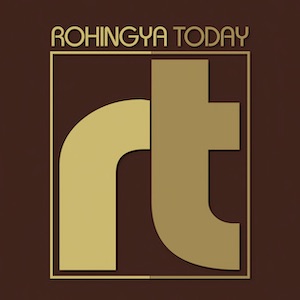
Tehran Times
TEHRAN - Just a little more than a year ago, at least ten thousand Rohingya were killed in northern Rakhine state, at least 350 villages were burnt to the ground. As a result, about 750,000 had to flee to neighboring Bangladesh.
I, on behalf of all Rohingyas, would like to thank the Bangladesh government and public for hosting more than a million Rohingya refugees. We appreciate all the efforts made by Bangladesh.
However, Rohingya refugees have again faced the threat of forced repatriation. If you visit the camps of Bangladesh, you will find elderly people for whom this is the third time they have had to flee to Bangladesh.
The world has seen this cycle of persecution and killings in Myanmar resulting in hundreds of thousands of refugees fleeing to Bangladesh. These refugees are then forced back to Myanmar and again they meet the same fate of persecution and catastrophic violence. This vicious and murderous cycle has been going on since 1978.
Bangladesh signed a bilateral agreement with Myanmar on November 23, 2017, and tried to start repatriation on January 23, 2018, but failed. Again just recently on November 15, 2018, they tried to repatriate the first batch of 2,260 Rohingya but failed again.
The reasons why the refugees are refusing to be repatriated are crystal clear. Marzuki Darusman, the chair of Independent International Fact-Finding Mission, summed it up at UN Security Council on October 24. He said that genocide is ongoing in Myanmar.
Almost 130,000 Rohingya have been in concentration camps in Sittwe for more than 6 years now. These internally displaced people (IDPs) are trapped in the camps and live under difficult circumstances. They are dependent on food distribution by WFP or ICRC. Life is intolerable and they have been taking risky journeys to Malaysia by boat.
In last two months, at least four boats carrying Rohingya while fleeing to Malaysia were detained in Myanmar water territories and were sent back to original departure points and they were forced to accept the National Verification Card which we called Genocide Card. In the past, these attempts to reach Malaysia have led to drowning of thousands.
Those who are not in IDP camps effectively live in an open-air prison. There are restrictions on every aspect of normal life. The Rohingya need to obtain permission from the village authority to travel from one village to another even if another village is just a couple of minutes walking distance. Since late 2016, Rohingya are not allowed to travel from one town to another. They need permission to seek emergency health care and many die because of the lack of proper medical facilities
The mosques in the Northern Arakan State are closed since 2012. There is no freedom of religion. Many religious scholars were being targeted, arbitrarily arrested and killed.
The Rohingya still need permission for marriage. Most of the newborn babies are not allowed to register. The Rohingya are subjected to killings, extortion, and marginalization in every sphere of life. People live in perpetual fear.
From January until now, more than 15,000 have fled to Bangladesh. As the genocide is ongoing, Rohingya are continuously fleeing to safer pastures.
The reasons why the survivors and refugees in Bangladesh are refusing to be repatriated include:
1. There is no security whatsoever and organisations of every type have said this repeatedly this year.
2. Rohingya will be herded into so-called transit camps which are effectively the concentration camps we have seen since 2012.
3. They will be forced to accept a National Verification Card yet they were once recognized as full citizens and their ethnic identity was officially recognized too. And everyone knows that the National Verification Card is tantamount to labeling Rohingya as illegal Bengali migrants and it is a Genocide Card as I mentioned earlier.
4. There is no guarantee that Rohingya will be allowed to go back to their original villages. The people who are already inside the country are not allowed to go back and live in their own lands in their villages.
5. If Myanmar is genuine about repatriation, they must dismantle the huge array of apartheid and discriminatory laws and regulations affecting Rohingya. Myanmar must stop denying its crimes, preventing humanitarian access, preventing every single international initiative to investigate what happened and continuously protecting its generals.
Every politician from every country after visiting the Bangladeshi camps declared that the Rohingya should be able to return. We Rohingya agree. And so we appeal to everyone to ensure the conditions are appropriate for safe return and without any fear of another round of massacres and burnings.
Provide us with international protection in our homeland Rakhine state. Ensure that the generals who are committing these crimes can no longer do so with impunity. Call for repatriation without the necessary international protection and without the changes, I have listed, then you will be sending Rohingya survivors to the killing fields of Myanmar.
Nay San Lwin is the Campaign and Media Relations Coordinator for Free Rohingya Coalition. This article is exclusively written for Tehran Times.








